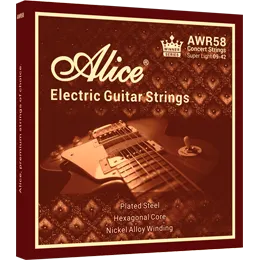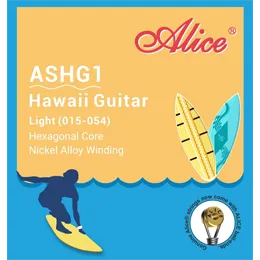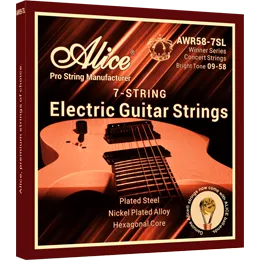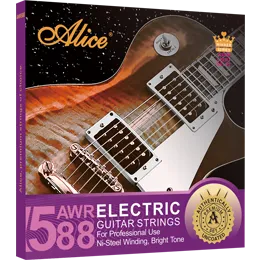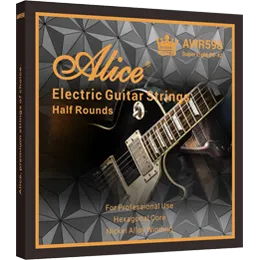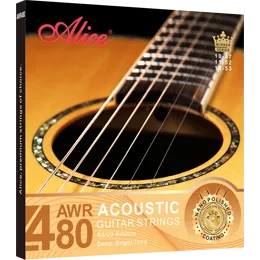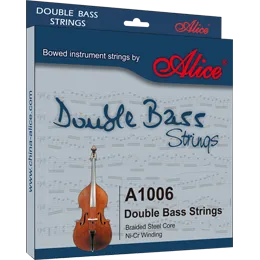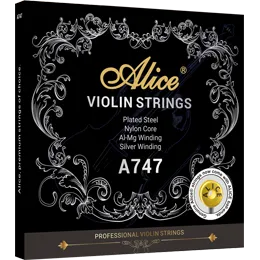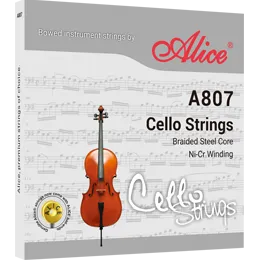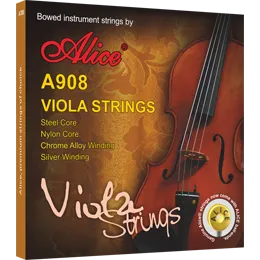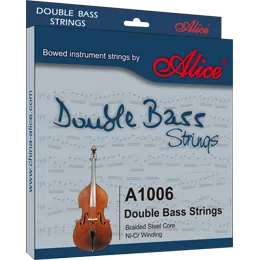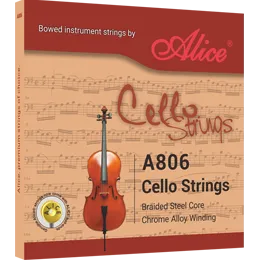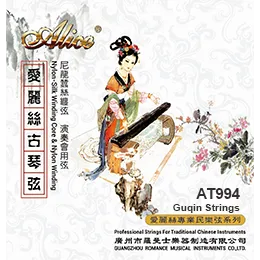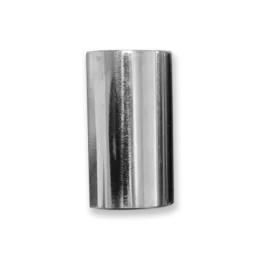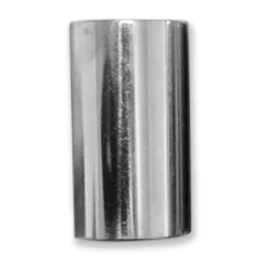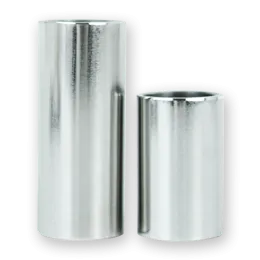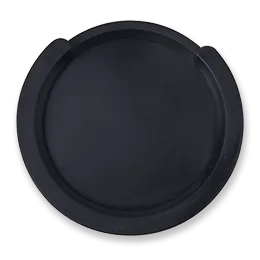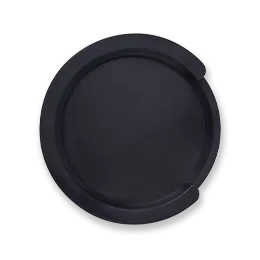What Strings Fit Your Instrument? The Ultimate Guitar String Matching Guide
Choosing the right strings for your guitar isn't just a matter of brand or price—it’s about compatibility. Your instrument has specific tonal characteristics, structural limits, and musical goals. The right strings enhance your sound, feel better under your fingers, and prolong your guitar’s life. The wrong strings, however, can dampen your tone, strain your guitar's neck, or even cause damage over time.
1. Acoustic Guitars
Steel String Acoustic
If you play a traditional steel string acoustic guitar, you’ll want to stick with bronze-based strings, which are known for their brightness and projection.
Recommended string types:
80/20 Bronze: Crisp, bright tone. Great for strumming and folk.
Phosphor Bronze: Warmer, balanced tone. Ideal for fingerstyle, singer-songwriters.
Silk and Steel: Softer feel, mellow sound. Great for beginners and vintage acoustics.
Best gauge range:
Light (.011–.052) for easier playability
Medium (.012–.054) for balanced tone and feel
Heavy (.013–.056+) for volume and rich lows (but only if your guitar is built for it)
Tip: Always check your guitar's bracing and neck support before switching to heavier gauges.
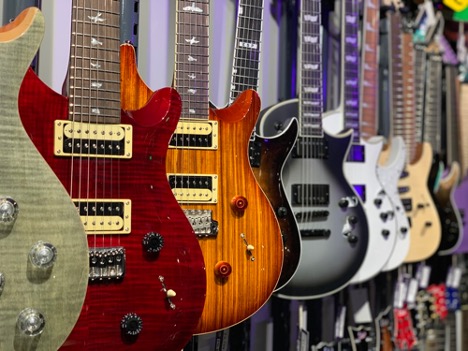
2. Classical Guitars
Classical guitars are designed for nylon strings, not steel. Installing metal strings can damage the neck and bridge.
Recommended string types:
Clear Nylon: Traditional, mellow tone with smooth feel
Black Nylon: Slightly warmer tone, common in flamenco
Carbon/Fluorocarbon: Bright, responsive, more modern projection
Composite Bass Strings: Richer low end and longer sustain
Tension options:
Low Tension: Easier on fingers, softer tone
Normal Tension: Balanced tone and feel
High Tension: More projection and brightness, but harder to press
Tip: If you’re into classical, flamenco, or Latin music, choose tension and material based on your style and comfort level.
3. Electric Guitars
Electric guitars rely on magnetic pickups, so strings must be made with ferromagnetic metals like nickel or stainless steel.
Recommended string types:
Nickel-Plated Steel: Balanced brightness and warmth; most versatile
Pure Nickel: Warmer, vintage tone; great for blues and jazz
Stainless Steel: Bright, punchy, and durable; good for rock and metal
Coated Strings: Ideal for players who want long-lasting performance
Best gauge range:
.009–.042 (Super Light): Easy bending, ideal for fast lead playing
.010–.046 (Regular Light): Balanced for rhythm and lead
.011–.050+ (Heavy): Powerful tone and tuning stability for drop tunings
Tip: If you play metal or use alternate tunings, go for heavier strings with high durability.
4. Archtop & Jazz Guitars
Jazz guitars, especially archtops with floating bridges, respond best to flatwound strings.
Recommended string types:
Flatwound Nickel or Chrome: Smooth feel, mellow tone, less finger noise
Gauge: .011–.052 or heavier for full-bodied jazz tone
Tip: These strings are also easier on the fingers and fingerboards.
5. 12 String Guitars
Twelve string guitars require sets with matched octave pairs, typically in light or custom gauge to avoid neck tension.
Recommended string types:
Phosphor Bronze or 80/20 Bronze (for acoustics)
Nickel-Plated Steel (for electrics)
Light or Extra-Light Gauge to reduce stress on the neck and bridge
Tip: Always ensure your 12 string guitar is properly set up for the extra tension.
6. Travel & Parlor Guitars
These smaller-bodied guitars benefit from lighter gauge strings to maintain clarity without overloading the instrument.<
Relate News
-
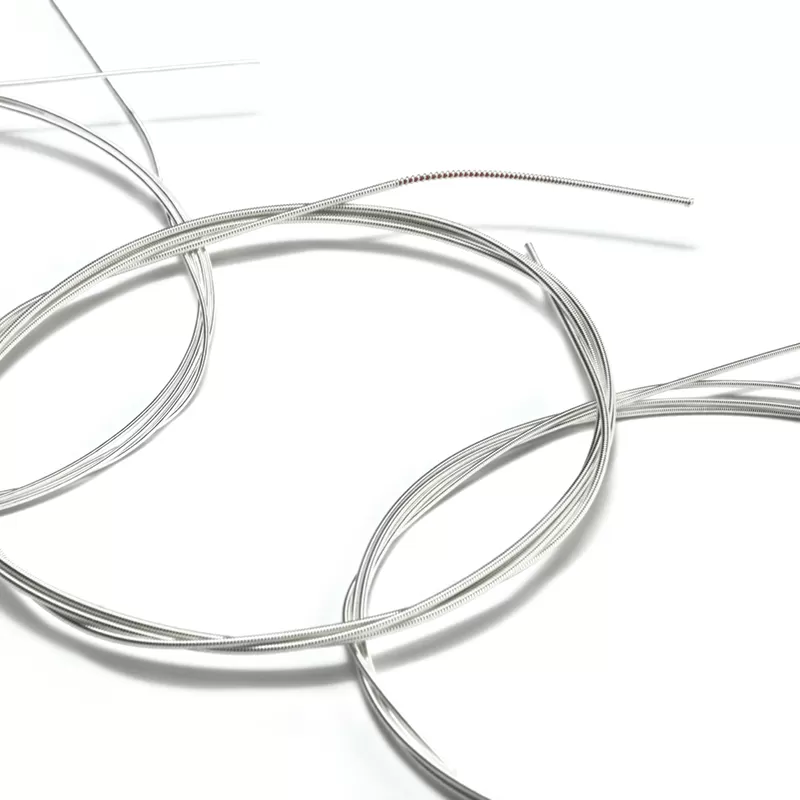 Classical guitar strings may look similar at first glance, but string tension has a significant impact on tone, volume, playability, and even long-term guitar health. Among nylon strings, normal tension and high tension are the two most common options. Choosing the right tension can dramatically affect your playing experience.
Classical guitar strings may look similar at first glance, but string tension has a significant impact on tone, volume, playability, and even long-term guitar health. Among nylon strings, normal tension and high tension are the two most common options. Choosing the right tension can dramatically affect your playing experience. -

2026 Guitar Strings Market Trends: What Distributors Should Know
The global guitar strings market is undergoing a significant transformation in 2026, driven by evolving musical preferences, technological innovation, and shifting consumer behavior. For distributors, understanding these trends is crucial not only to stay ahead of the competition but also to identify new growth opportunities. Whether you are targeting professionals, hobbyists, or OEM partnerships, knowing where the market is heading can help you make informed sourcing and sales decisions. -
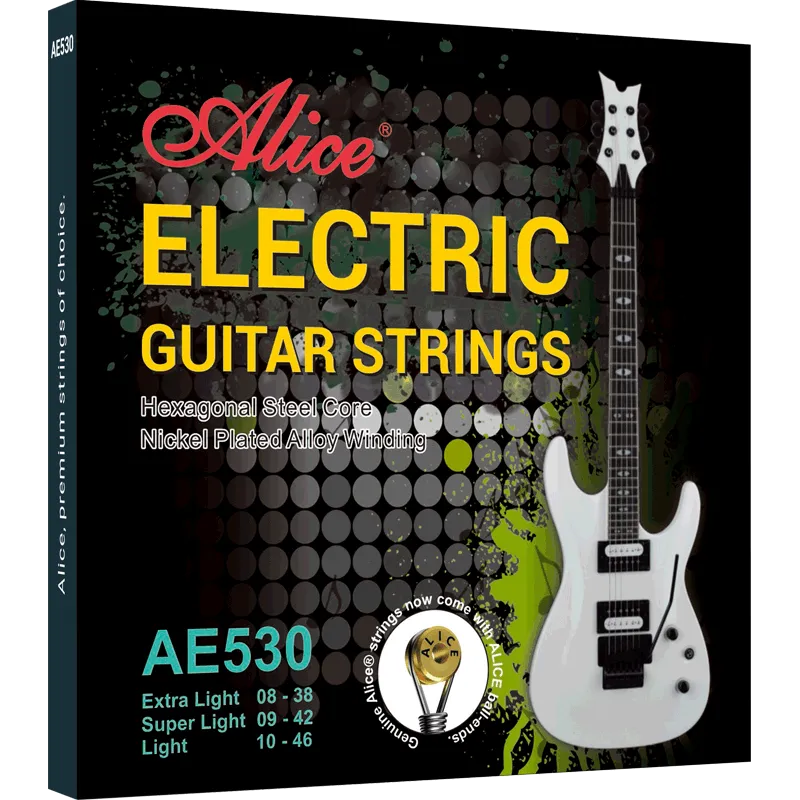
Electric Guitar Strings Explained: Gauge, Material, Tone
Choosing the right electric guitar strings is a journey of tone, comfort, and style. By understanding gauge and material, you’ll unlock the sound that best fits your music. -
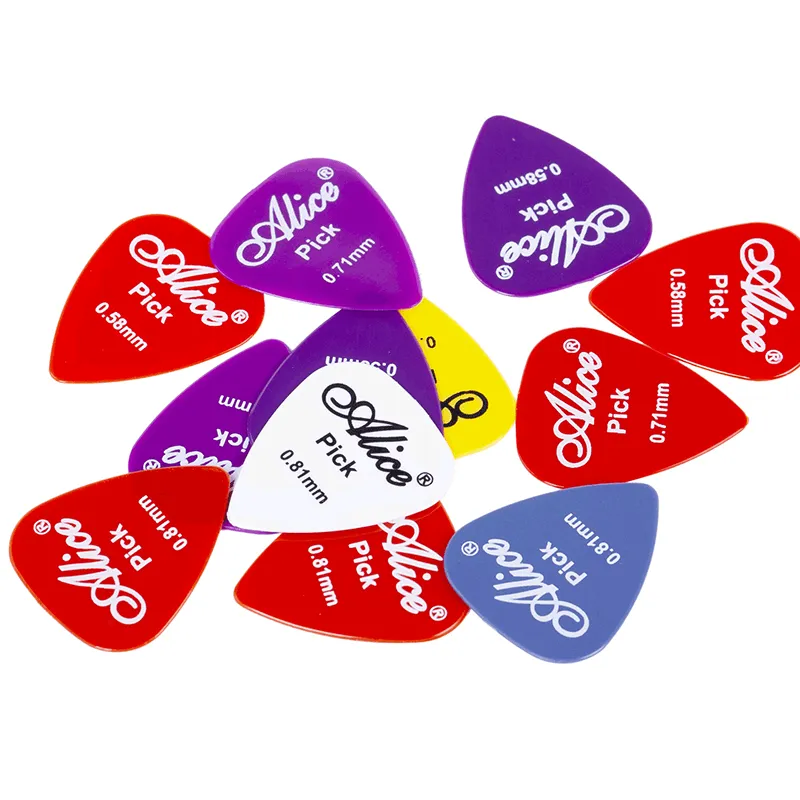
What Type of Guitar Pick Is Best?
Choosing the right guitar pick may seem like a small decision, but for guitarists, it can have a surprisingly big impact on tone, technique, and overall playing experience. Picks come in a wide range of shapes, sizes, thicknesses, and materials, each designed to meet different musical needs. Whether you are a beginner learning your first chords or a professional guitarist performing on stage, understanding how different picks influence sound and playability will help you choose the one that best suits your style. -
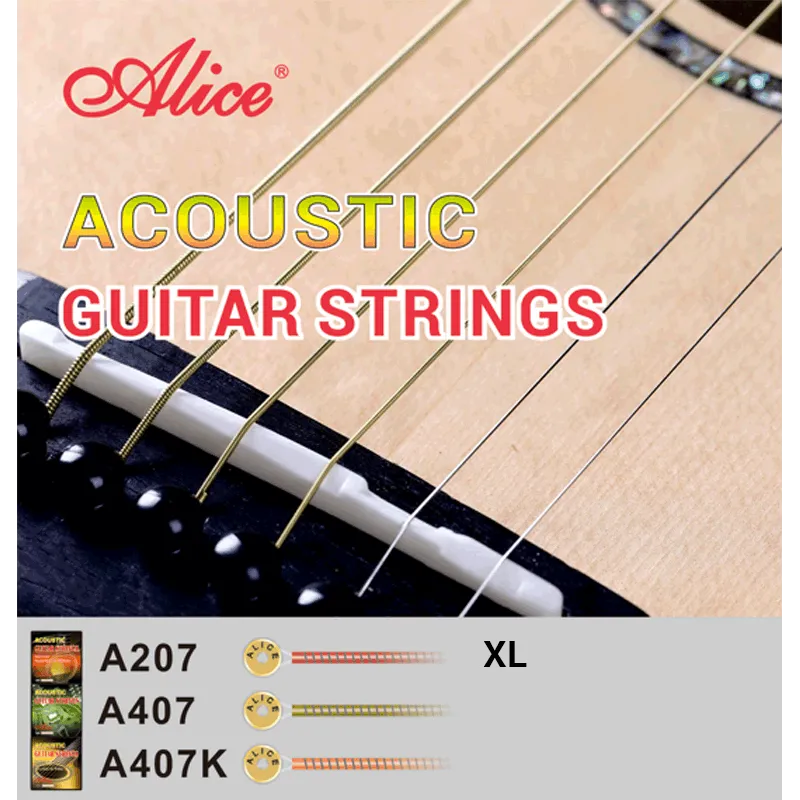
Are Acoustic and Classical Guitar Strings the Same?
As a global brand specializing in professional guitar strings, Alice offers a complete range of acoustic and classical guitar strings tailored to different playing styles, skill levels, and performance needs. Manufactured with advanced technology and strict quality control, Alice strings deliver consistent tone, durability, and comfort—making them a reliable choice for distributors, retailers, and OEM partners worldwide. -
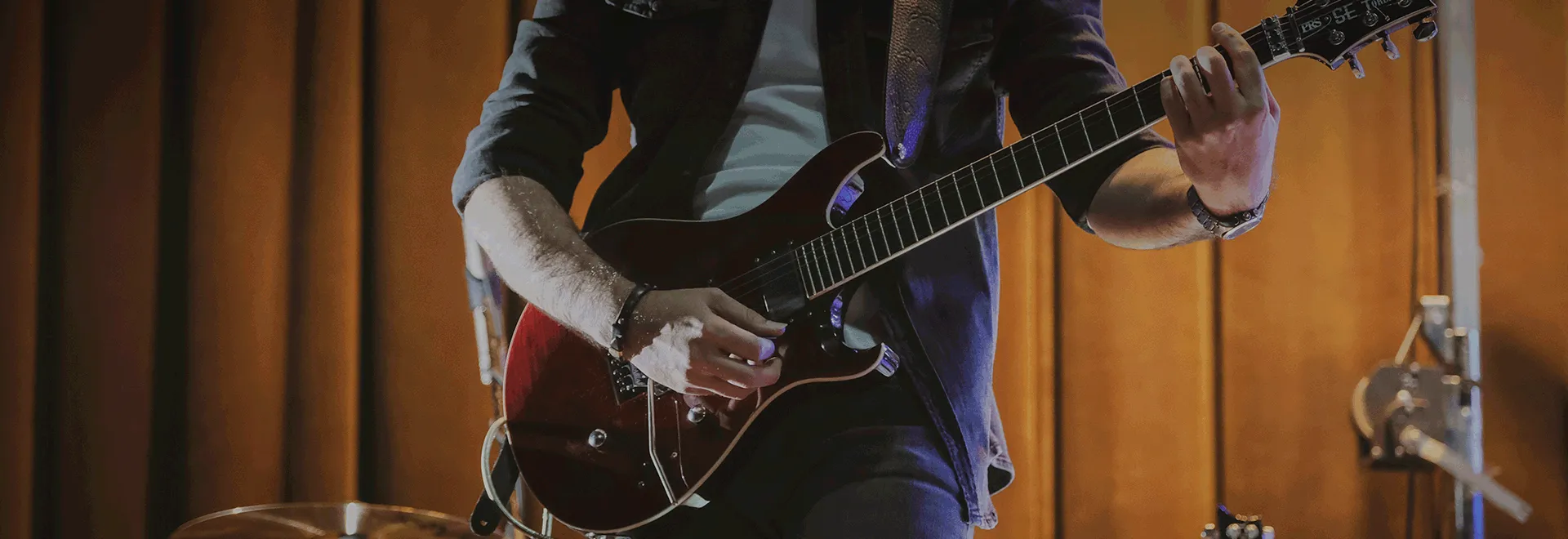
Acoustic Guitar Strings Guide: Types and How to Choose the Right One
And when you're ready to choose your next set, consider Alice Acoustic Guitar Strings—crafted for clarity, built to last, and trusted by guitarists around the world. Whether you're strumming under the stars or recording in the studio, Alice brings your music to life. -

From Classic Rock to Modern Indie: The Evolution of Guitar String Trends
Guitar strings may seem like a small component of the instrument, but over the decades, they’ve played a major role in shaping the sound, tone, and feel of countless musical movements. From the electrifying riffs of classic rock to the textured soundscapes of modern indie music, the trends in guitar strings have evolved alongside musical tastes, technology, and player preferences. -
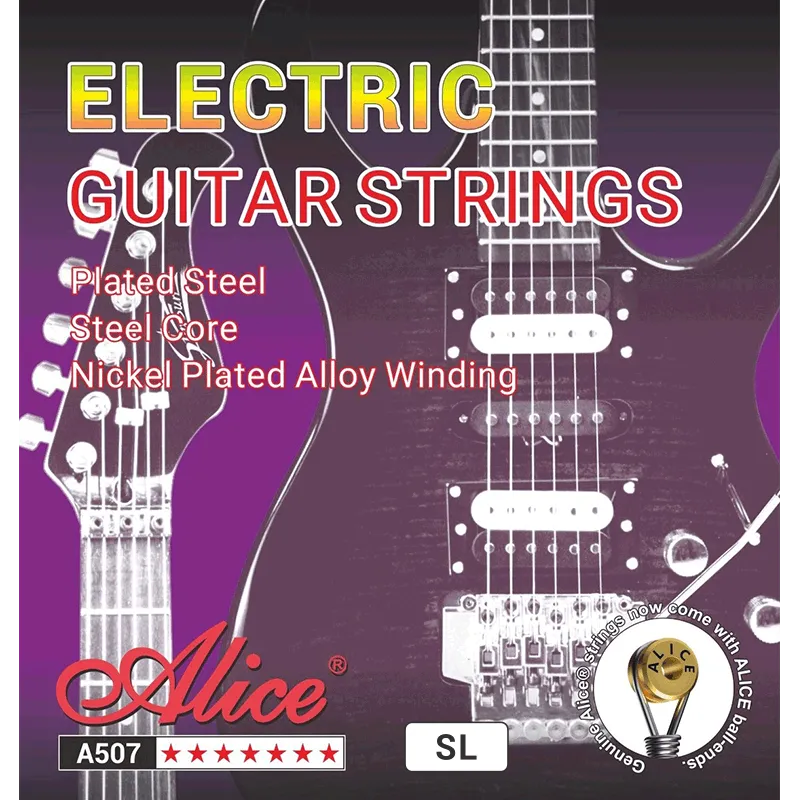
What Are the Different Types of Guitar Strings?
Guitar strings may seem like a small part of your instrument, but they play a crucial role in the overall tone, playability, and performance of your guitar. Whether you're a beginner or a seasoned player, understanding the different types of guitar strings can help you make informed decisions that enhance your playing experience. -
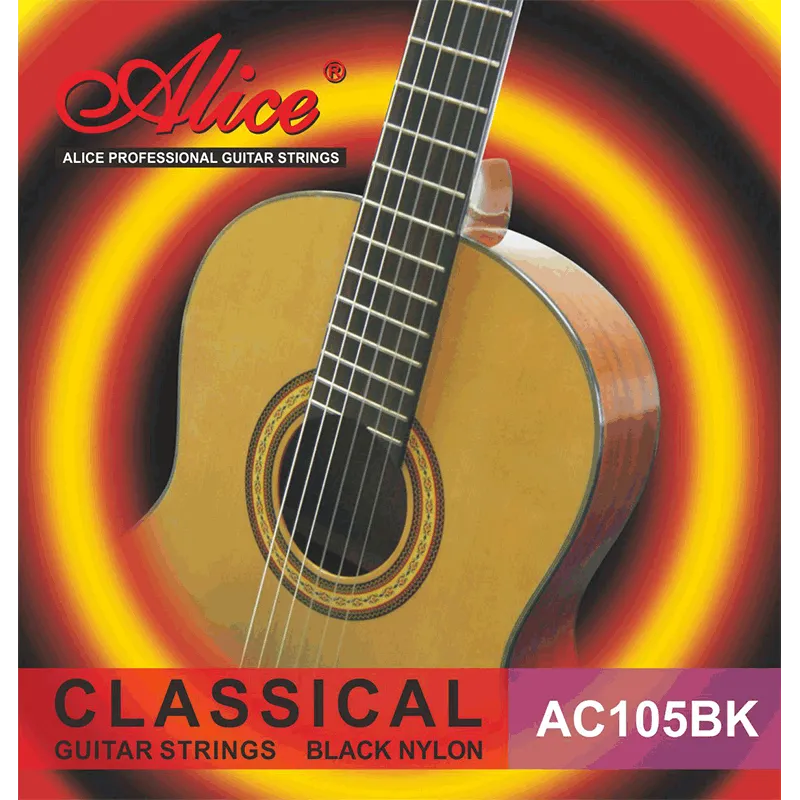
Wholesale Guitar String Purchasing: A Practical Guide for Retailers and Distributors
In the musical accessories industry, guitar strings remain one of the most frequently sold and restocked items. Whether you run a music store, manage an e-commerce platform, or distribute to local schools and bands, purchasing guitar strings in bulk requires more than just choosing the lowest price. -
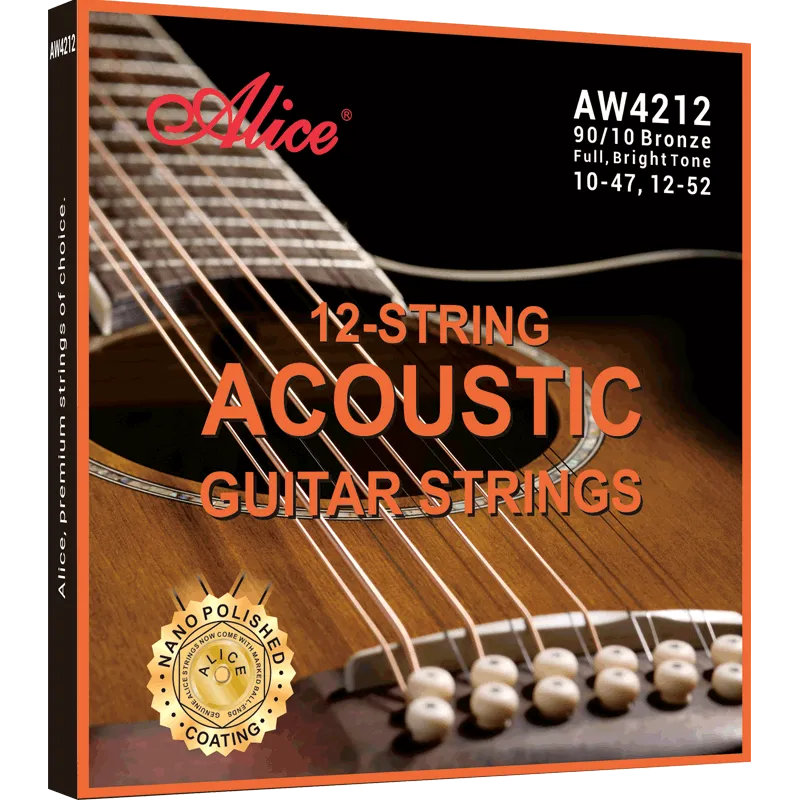
How to Choose the Right Guitar String Models for Export Markets
one string gauge or material might be popular in the U.S., a completely different specification may be in demand in Japan, Brazil, or Germany. For manufacturers and distributors, adapting to these nuances is essential to gaining market share and building lasting relationships with music retailers and players around the world. -

From Factory to Store: Guitar String Supply Chain Trends
As musicians become more conscious of quality, sustainability, and ethical sourcing, guitar string manufacturers and distributors are responding with greater transparency and innovation. -
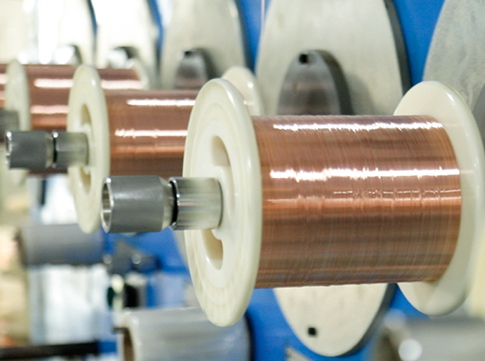
Give Charm to Sound, Make Music Magic: Discover ALICE, the Exceptional Wholesale Guitar Strings
ALICE, as a leading manufacturer of premium-quality wholesale guitar strings, we are dedicated to providing the tools that empower musicians to create enchanting melodies and captivating harmonies.


